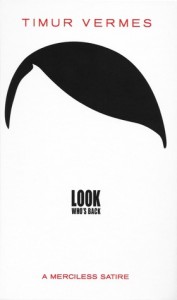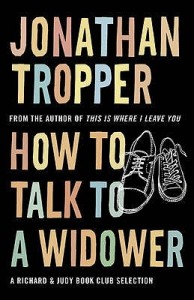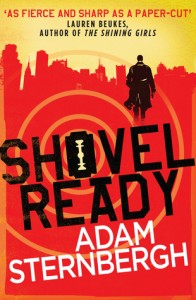 Title: The Thousand Autumns of Jacob de Zoet (Goodreads)
Title: The Thousand Autumns of Jacob de Zoet (Goodreads)
Author: David Mitchell
Published: Sceptre, 2010
Pages: 469
Genres: Historical Fiction
My Copy: Library Book
Buy: Amazon, Book Depository, Kindle (or visit your local Indie bookstore)
The Thousand Autumns of Jacob de Zoet tells the story of the Dutch East India Company’s trading post off of Nagasaki in 1977. Japan has been cut off from the rest of the world and the only outside influence was a small man-made island known as Dejima. Originally built by Portuguese traders, this island was walled off and used by the Dutch as a trading post from 1641 until 1853. This novel follows the story of Jacob de Zoet, a young clerk who has been sent to Dejima to uncover any evidence of corruption form the previous Chief Resident of this trading post.
My first attempt with David Mitchell was Cloud Atlas which probably was a terrible starting point; I had a lot of problems with the fragmented storyline. I know that Cloud Atlas was an experimental piece of post-modern fiction but for me it felt like a writing exercise to see what genres he was able to write in. With a little push, I was convinced to try The Thousand Autumns of Jacob de Zoet, which is a straight forward historical fiction novel that would allow me to discover Mitchell as a writer but try anything experimental again. I think if I read this book first, I would have gained an appreciation for this author and been more willing to see what he can do when he played around with genres.
This novel can be broken into two parts. The first half of the book establishes the world; we learn about the history of the Dutch East India Company, Japan and the island of Dejima. Mitchell spends a lot of time building characters and painting beautiful scenery. This is a nice slow-paced section that just explores the history and the culture clash between Japan and the Dutch; it also allows the reader to meet some of the characters. Then the book changes tone completely and everything becomes fast paced and thrilling which I won’t get into as this is where the bulk of the plot happens and I am not willing to give spoilers.
While this book does deal with the culture clash, it also looks at love and the human condition. Jacob de Zoet falls in love with a Japanese midwife, Orito and the plot does focuses a lot around this affection. Orito was a great heroine in this book. She pushes to learn how to be a midwife, in a time and place where the term midwife would have been unheard of. She is this strong willed and intelligent woman that just stole the show for me. I did struggle a little with Jacob de Zoet, he was this incorruptible man working on a trading post full of corruption. He just felt so good and kind, almost to the point of being fake. His prudishness and piety sometimes rubbed me the wrong way; as most people know. I do like characters that are deeply flawed so Jacob came across as too perfect. Having said that, I think this (somewhat) perfect protagonist was utilised well within the novel and helped Mitchell explore the themes around the human condition.
One thing I was curious about that I felt wasn’t explored enough was the language barrier between the Japanese and the Dutch. There was a great deal of exploration with the differences in cultures and how they clashed but when it came to language it was brushed over. There is so much there that was mentioned that I wanted more information about, for example when it came to the translators. The translators had the power to translate Japanese to Dutch and the opportunities for corruption was mentioned briefly and I would have loved to see these ideas explored more.
David Mitchell seems to have a keen interest in Japanese culture and the human condition, I felt like The Thousand Autumns of Jacob de Zoet was able to explore these topics far better than I think Cloud Atlas did. I am not trying to rip apart Cloud Atlas (I may re-read it one day), I just felt the emotions and character development were missing from that novel. The Thousand Autumns of Jacob de Zoet has given me the confidence to try more books by David Mitchell and I am not sure what I will look at next but I am curious. If anyone wants to recommend me another Mitchell book, maybe something with a flawed character, please let me know.

 Title: Look Who’s Back (
Title: Look Who’s Back (
 Title: California (
Title: California ( Title: Gone Girl (
Title: Gone Girl ( Title: Mr. Mercedes (
Title: Mr. Mercedes ( Title: Foreign Soil (
Title: Foreign Soil ( Title: How to Talk to a Widower (
Title: How to Talk to a Widower ( Title: The Fever (
Title: The Fever ( Title: The Collected Works of A.J. Fikry (
Title: The Collected Works of A.J. Fikry ( Title: Shovel Ready (
Title: Shovel Ready (